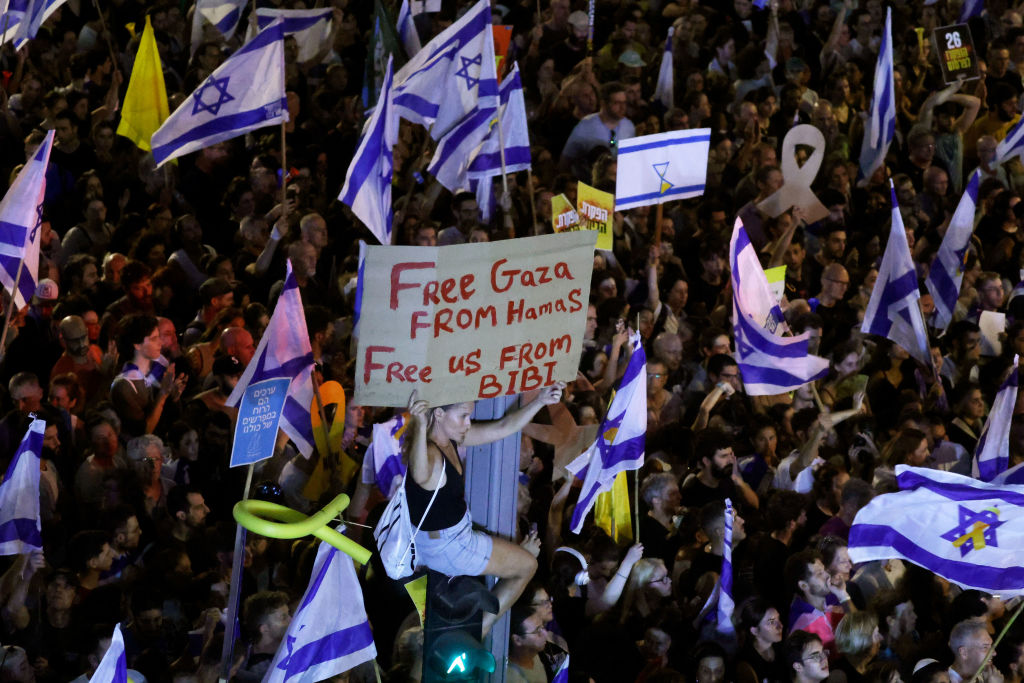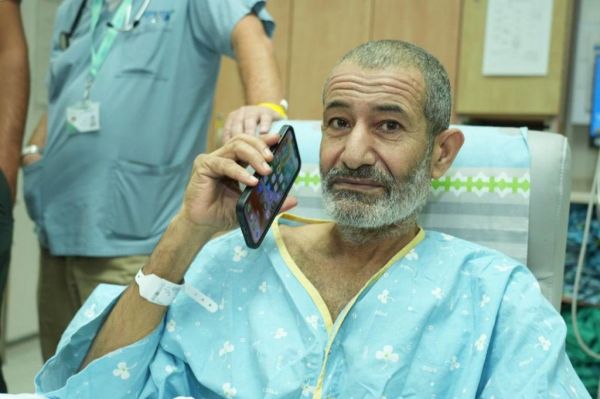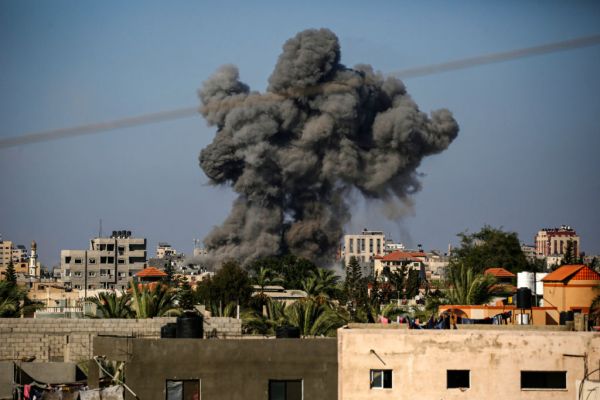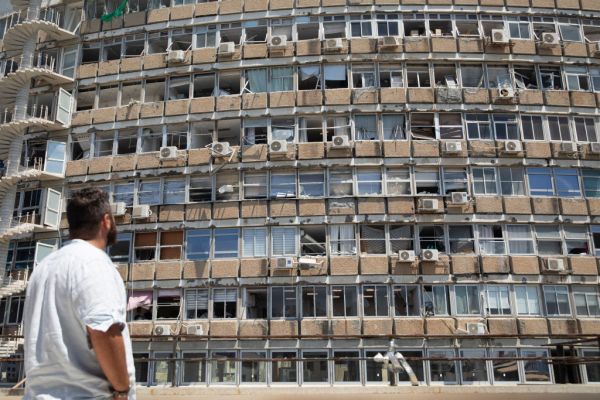Happy Tuesday. Let’s get straight into the news.
Quick Hits: Today’s Top Stories
- The Israel Defense Forces (IDF) on Saturday discovered the bodies of six Israeli hostages—four men and two women, all between the ages of 23 and 40—in tunnels underneath the southern Gazan city of Rafah. Following an autopsy, the Israeli health ministry said that Hamas executed the hostages at point-blank range between 24 and 48 hours before the IDF found them. Among the murdered hostages was 23-year-old Hersh Goldberg-Polin, an American-Israeli dual citizen who lost his lower arm in the October 7 attacks from Hamas explosives before he was abducted and brought to Gaza. “Make no mistake, Hamas leaders will pay for these crimes,” President Joe Biden said in a written statement. “And we will keep working around the clock for a deal to secure the release of the remaining hostages.” There are some 100 hostages still thought to be in Gaza, though it’s not clear how many remain alive.
- Spurred to action by the IDF’s discovery of the six murdered hostages in Rafah, hundreds of thousands of Israeli protesters took to the streets on Sunday and Monday, expressing frustration with Israeli Prime Minister Benjamin Netanyahu for the lack of a ceasefire-for-hostages deal with Hamas—though Hamas leader Yahya Sinwar has shown little interest in actually reaching an agreement. An Israeli trade union, Histadrut, launched a labor strike in support of the ceasefire and hostage release protests, but an Israeli court in Tel Aviv on Monday ordered the strike to end, ruling that it was politically motivated—not driven by labor or workers’ complaints—and therefore was not legally allowed to continue. Netanyahu remained steadfast on Monday in his commitment to keeping Israeli troops in the Philadelphi Corridor—a strip of land on the Gaza-Egypt border and a key smuggling route for Hamas—thought to be a major sticking point in negotiations.
- Meanwhile, Hamas claimed responsibility for a drive-by shooting along a highway in the southern West Bank on Sunday that killed three Israeli police officers, in addition to two separate car bomb attacks in the region—one that was safely neutralized by Israeli authorities, and another that left three IDF soldiers with non-serious injuries. The 31-year-old gunman in the drive-by shooting was killed by IDF soldiers shortly after his fatal attack on the police officers.
- Ukraine launched a large-scale drone attack on Russian territory over the weekend, hitting a refinery and power station in what is believed to be one of the largest such attacks in Ukraine’s war with Russia to date. Kremlin officials claimed Russian air defenses downed 158 Ukrainian military drones across 15 regions, including nine over the Russian capital of Moscow, and said on Monday that Russia would be updating its nuclear weapons protocol that currently permits Russia to deploy nuclear weapons in response to a nuclear attack or an attack that threatens the government’s existence. While the precise changes are unclear, a senior Russian government official said the move was prompted by the alleged “escalation” of Western nations in the Russia-Ukraine war.
- Meanwhile, Russia launched missile strikes in several major Ukrainian cities on Monday morning that wounded dozens of civilians—including kids—on the first day of school for many Ukrainian children. Just days prior, a Russian missile assault on the northeastern Ukrainian city of Kharkiv killed seven people—including a 14-year-old girl—and injured dozens more, after guided bombs struck a residential building and a playground.
- Ukrainian President Volodymyr Zelensky fired the Ukrainian Air Force’s top commander, Mykola Oleshchuk, on Friday, after a U.S.-made F-16 fighter jet—one of a handful so far delivered to Ukraine—was destroyed in a crash earlier last week, killing its pilot. Zelensky did not explain a reason for Oleshchuk’s dismissal, and it’s unclear whether the F-16 crash was a motivating factor, as Ukrainian authorities continue to investigate the cause of the incident.
- The far-right populist Alternative for Germany (AfD) party won its first-ever regional state election in the central German state of Thuringia on Sunday and came in a close second place in the eastern German state of Saxony. AfD secured nearly one-third of the vote in state parliament elections in Thuringia, making it the largest party in the parliament, though it will likely be kept out of state government by the other parties who are unlikely to join it in a coalition. A far-left party founded earlier this year that shares parts of AfD’s anti-immigrant sentiment, the Sahra Wagenknecht Alliance, came in third place in both Thuringia and Saxony.
- The United States Central Command (CENTCOM) confirmed on Friday that U.S. forces killed 15 ISIS militants in western Iraq on Thursday in a joint mission with the Iraqi military. Several media outlets reported the operation left seven U.S. soldiers with non-serious injuries. “This operation targeted ISIS leaders to disrupt and degrade ISIS’ ability to plan, organize, and conduct attacks against Iraqi civilians, as well as U.S. citizens, allies, and partners throughout the region and beyond,” CENTCOM said.
- The U.S. Justice Department confirmed on Monday it had seized Venezuelan President Nicolas Maduro’s private jet, saying the plane’s purchase violated U.S.-imposed sanctions on Maduro. The confiscation—which reportedly took place while the jet was undergoing maintenance in the Dominican Republic—comes one month after the Biden administration recognized Venezuelan opposition candidate Edmundo González as the rightful winner of the nation’s presidential elections, and claimed Maduro “tampered with the results of that election, falsely claimed victory, and carried out wide-spread repression to maintain power.”
- Fifteen members of the Turkish Youth Union—a revolutionary, anti-American youth organization—were arrested in Turkey on Monday after they assaulted two U.S. service members posted aboard the USS Wasp, a naval vessel docked in the western Turkish city of Izmir after joint military exercises with Turkish warships. The U.S. Embassy in Turkey said that Turkish authorities assisted in suppressing the assault and added that the two military personnel “are now safe.”
- Seven people—including a 6-year-old boy and a 16-year-old girl—were killed in Mississippi on Saturday after a commercial bus en route to Mexico experienced a tire failure, causing the vehicle to crash and flip. Some 37 other passengers were injured and hospitalized, and three agencies—the National Transportation Safety Board, Missippi’s Commercial Transportation Enforcement Division, and the state’s highway patrol—have opened separate investigations into the fatal incident.
‘A National Trauma’

At the Democratic National Convention last month, Jon Polin and Rachel Goldberg took the stage in Chicago, their hometown, with pieces of masking tape stuck to their shirts. On the tape was the number 320: the number of days since their son, Hersh Goldberg-Polin, a dual Israeli and American citizen, was taken hostage by Hamas.
While the crowd at the convention chanted “Bring them home!”—a call for the release of the hostages remaining in Gaza after their abduction by members of Hamas and its allied terrorist groups on October 7, 2023—Hersh’s mother, Rachel, collapsed onto the podium in tears.
Her son had been attending the Nova music festival in southern Israel when he was taken in Hamas’ brutal onslaught. A terrorist’s grenade blew off Hersh’s left hand and forearm—his dominant one—and he was last seen alive in a hostage video recorded by his Hamas captors in April. Before the DNC crowd, Rachel lovingly described her 23-year-old son as “obsessed” with music and music festivals and fascinated by maps, geography, and travel.
Since his abduction, “We live on another planet,” Rachel said at the DNC. She had stopped listening to music, doing crosswords, and wearing makeup when her son was taken, and was eating just one meal a day as she and her husband traveled the world to advocate for the release of Hersh and the other Hamas-held hostages. “Anyone who is a parent—or has had a parent—can try to imagine the anguish and misery that Jon and I and all the hostage families are enduring,” she said.
But now, only days after Rachel’s DNC speech, her son is dead. Hamas terrorists executed Hersh and five other hostages before the Israel Defense Forces (IDF) troops reached their location in a tunnel under Rafah, the southernmost city in Gaza, on Saturday.
The discovery of the six murdered hostages set off paroxysms of grief and outrage across Israel, including widespread protests and labor action—and demands for a deal to facilitate the return of the some 100 hostages still held in Gaza, even as prospects for such an agreement still seem slim.
The six hostages were discovered on Saturday afternoon local time, and the Israeli health ministry assessed they were shot at point-blank range just 24 to 48 hours earlier. In addition to Hersh, the recovered hostages included Ori Danino, Alex Lobanov, Almog Sarusi, Carmel Gat, and Eden Yerushalmi—two women and four men, all but one of whom were taken from the Nova music festival on October 7. Gat, 40, was abducted from her home in Kibbutz Be’eri.
The spokesman for Hamas’ military wing implied that, after Israel’s successful rescue of four hostages in June, new orders were given to terrorists guarding the captives to kill hostages if the IDF advances on their position. Some 100 hostages are thought to still be in Gaza, but how many of those 100 are still alive is unclear. The Israeli military has rescued a handful of hostages in recent months, and more than 100 were released during a temporary truce in November.
The news of the hostages’ murders sent hundreds of thousands of people to the streets of Tel Aviv, Jerusalem, and other Israeli cities on Sunday, with many calling for a ceasefire-for-hostages deal that would see hostages returned home in exchange for a permanent truce. Protesters marched through the streets and blocked major highways throughout the country. “The country is heartbroken right now,” said Enia Krivine, the senior director of the Foundation for Defense of Democracy’s Israel program. The hostages’ murder, she added, was “a national trauma,” especially considering it seems unlikely further hostage rescues will be successful.
The largest Israeli labor union called a strike for Monday, which halted much transportation in the country, including, briefly, flights to and from Israel’s Ben Gurion International Airport. The strike was cut short, however, by a court decision that held it was political in nature, and therefore a violation of Israeli law, which requires that strikes be called only over economic issues.
Still, protests continued Monday and many demonstrators—as they have for months—directed their anger primarily toward Prime Minister Benjamin Netanyahu rather than Hamas. Some called him a “murderer,” laying the hostages’ deaths at Bibi’s feet over what his opponents feel was his refusal to reach a deal with Hamas for political reasons: Far-right members of his coalition have threatened to topple Netanyahu’s government over any deal that would bring the war to a permanent end, which would likely mean Bibi would lose the premiership in new elections.
Negotiations between Israel and Hamas, mediated by officials from the U.S., Qatar, and Egypt, have seemed to ramp up in recent weeks as the parties debate a U.S.-proposed, three-phase deal. Details are still evolving, but the agreement would result in a temporary ceasefire during which at least some Hamas-held hostages would be exchanged for Palestinian prisoners held in Israel. Under the proposal, that ceasefire would, after a period of negotiations, give way to a permanent truce. Late last month, Israel agreed to a so-called “bridging proposal” to come closer to achieving the full agreement, which Hamas promptly rejected.
One of the final points of contention has been Israel’s presence in the Philadelphi Corridor, a plot at the southernmost part of the Gaza Strip where the enclave borders Egypt. The IDF has cleared the area, where military members found an extensive cross-border Hamas tunnel system—with some tunnels large enough to drive trucks through—that the group used to smuggle weapons into the enclave. “Hamas wants the Philadelphi Corridor because it wants to survive,” Krivine told TMD of the terrorist organization’s reason for demanding this concession from Israel. “It wants to rearm, and it wants to be able to return to a fighting strength again.”
Protesters—and reportedly even Defense Minister Yoav Gallant—have pushed Netanyahu to soften his insistence on Israel holding the strip of land. “The significance of this is that Hamas won’t agree to it, so there won’t be an agreement, and there won’t be any hostages released,” Gallant reportedly told ministers at a security council meeting last week, where Netanyahu again reiterated his requirement that Israel maintain control over the corridor.
In a New York Times op-ed on Monday, the family of one of the remaining American hostages drew attention to the question of the corridor specifically. “Prime Minister Benjamin Netanyahu is reportedly prioritizing keeping Israeli forces deployed on the Philadelphi Corridor … a condition many say threatens the chance to bring home the remaining hostages,” wrote Adi and Yael Alexander, whose 20-year-old son Edan was abducted on October 7. “The killing of Hersh, Eden Yerushalmi, Carmel Gat, Almog Sarusi, Alexander Lobanov, and Ori Danino proves that Mr. Netanyahu can no longer hold up this deal. Our window to rescue the hostages is closing, and the prime minister is fastening the latch.”
But those calls on Monday seemed not to have changed the Israeli premier’s position. “The axis of evil needs the Philadelphi Corridor, and for that reason we must control the Philadelphi Corridor,” Netanyahu said during a press conference on Monday evening. If Israel pulls out of the area, he argued, international pressure would make it nearly impossible to return when Hamas once again takes over the area and resumes above- and below-ground smuggling, putting Israel at risk of attack once again.
President Joe Biden, after expressing his outrage at the hostages’ murder in a statement over the weekend, on Monday put pressure on Netanyahu. Asked before Netanyahu’s press conference whether Bibi was doing enough to achieve a deal, Biden said bluntly, “No.”
“It is puzzling that President Biden is pressing Prime Minister Netanyahu, who agreed to the U.S. proposal as early as May 31 and to the U.S. bridging proposal on August 16, and not Hamas leader Yahya Sinwar, who continues to vehemently refuse any deal,” an unnamed Israeli official told Axios’ Barak Ravid in response to Biden’s criticisms on Monday.
Biden said Monday that the U.S. was “very close” to presenting a final deal, though what that deal might entail—and what consequences the U.S. would impose on Hamas for not accepting—is unclear. National Security Adviser Jake Sullivan and top Middle East adviser Brett McGurk reportedly told the families of the seven remaining U.S. hostages that a deal could be done as early as two weeks from now.
But it’s also not clear that Sinwar—one of the few remaining high-ranking Hamas figures and the group’s political leader since Ismail Haniyeh’s assassination more than a month ago—is willing to do any deal at all. “Hamas is not willing to surrender,” said Krivine. “It is nowhere near the point where it’s decided that this war is over and that they’re looking for a way out. It’s essentially doubling down and trying to pull out these horrific tactics to terrorize Israelis.”
On Monday, Jon Polin and Rachel Goldberg held their son’s funeral in Jerusalem, joined by thousands of Israelis there to pay their respects. Still wearing their pieces of masking tape on now ripped shirts—a Jewish sign of mourning—the Goldberg-Polins eulogized their beloved son, who spent more than 330 days in captivity before he was executed. “Ok sweet boy, go now on your journey,” Rachel said, through tears. “I hope it’s as good as the trips you dreamed about because finally, my sweet boy, finally, finally, finally, finally you are free.”
Worth Your Time
- In The Atlantic, Jerusalem Demsas identified a major hurdle preventing local housing development projects: local government. “In America, we’ve delegated the power over how our land is used to the local level, and seeded the process with various veto points,” she wrote. “We’ve done this under the misguided assumption that decentralization will make the process more democratic. In reality, this system has resulted in stasis and sclerosis, empowering small numbers of unrepresentative people and organizations to determine what our towns and cities look like and preventing our democratically elected representatives from planning for the future. … NIMBYs win because land politics is insulated from democratic accountability. As a result, widespread dissatisfaction with the housing crisis struggles to translate into meaningful change.”
- As America’s “loneliness epidemic” continues to impact Americans nationwide and foster increased social tension, there could be a simple cure: “Make a new friend,” our old friend David French argued in the New York Times. “There is a class divide in the percentage of Americans who can rely on someone to give them a ride to the doctor, lend them a small amount of money in an emergency or offer a place to stay. Another way of putting this is that the Americans who are most vulnerable to losing the informal social safety net of friends and relatives may be the people who need it the most. … The thought that so many millions of our fellow citizens feel as if they don’t belong, as if they can’t call anyone for help or simply lack the pure joy of fellowship with close friends should grieve us all. It should change the way we behave. It should make us be more intentional about reaching out to people. And it should call us to action in our own neighborhoods and communities.”
Presented Without Comment
Politico: Convicted Fraudsters Launch AI Lobbying Firm Using Fake Names
Also Presented Without Comment
Washington Post: RFK Jr. Fought To Get On [North Carolina] Ballots. Now He’s Suing To Get Off Them.
In the Zeitgeist
Brian Kelly, Louisiana State University’s head football coach, was understandably frustrated on Sunday after his 13th-ranked Tigers lost to the 23rd-ranked University of Southern California Trojans in their first (r)outing of the season—so frustrated, in fact, that he sent his water bottle flying off the table when he banged his fist on it. And that sucker had some real hang time.
Toeing the Company Line
- In the newsletters: The Dispatch Politics team reported on Vice President Kamala Harris’ first interview since becoming the Democratic presidential nominee and Donald Trump’s recent shift on abortion policy, Nick pondered (🔒) what’s left for conservatives in the Trump-led GOP, Hannah Anderson argued in Dispatch Faith that the decision to have children should not derive from social or political strategies, and Kevin compared (🔒) the tribalistic nature of politics to the social dynamics of school.
- On the podcasts: Jonah ruminated on Harris’ first interview and the Christian underpinnings of the Western mind, Sarah talked to Jordan Ellenberg, author of How Not To Be Wrong: The Power of Mathematical Thinking, on The Skiff (🔒), and Jamie interviewed former U.S. National Security Adviser and retired Gen. H.R. McMaster about his new book, At War with Ourselves: My Tour of Duty in the Trump White House.
- On the site over the weekend: Christopher J. Scalia celebrated the return of the British rock band Oasis, Jordan J. Ballor argued that public depictions of the Ten Commandments by government entities aren’t necessarily unconstitutional or ethically problematic, and Matthew Kuchem proposed that academic universities strengthen free speech protections to counter the rise of campus illiberalism.
- On the site today: John reports on what a Stop the Steal 2.0 could look like and Chris provides a polling update as the presidential election enters the home stretch.
Let Us Know
How should Israel respond to Hamas’ murder of the hostages?












Please note that we at The Dispatch hold ourselves, our work, and our commenters to a higher standard than other places on the internet. We welcome comments that foster genuine debate or discussion—including comments critical of us or our work—but responses that include ad hominem attacks on fellow Dispatch members or are intended to stoke fear and anger may be moderated.
With your membership, you only have the ability to comment on The Morning Dispatch articles. Consider upgrading to join the conversation everywhere.